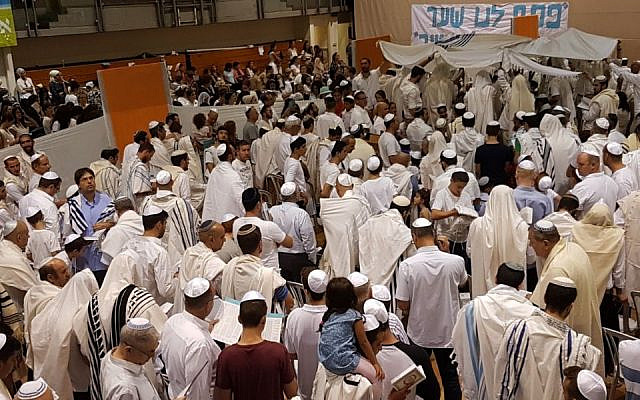Ultimately, there is one reason for all the restrictions, and it is because the Torah says so. That said, a number of interpretations have been offered.
By Rabbi Ari Enkin, Rabbinic Director, United with Israel
Yom Kippur, the Day of Atonement, is the holiest day of the year. A day of forgiveness and atonement. A day spent in prayer.
Why is it that Yom Kippur has so many restrictions? There are more restrictions on Yom Kippur than on any other day.
In addition to all the regular Shabbat restrictions, there are also “the five restrictions” of not eating or drinking, not washing, not anointing, not wearing leather shoes, and not engaging in marital relations. Why do we have and why do we need all these restrictions?
Well, ultimately, there is one reason for all the restrictions, and it is because the Torah says so. That said, a number of interpretations have been offered.
It is explained that Yom Kippur is actually a gift. God gives us one day a year to clean our slates and start anew. No baggage, no skeletons. All the restrictions are intended to keep us focused on the mission of the day: prayer and repentance.
If we were allowed to check our email and watch Netflix on Yom Kippur, pause every few hours for coffee and lunch breaks, our focus might not be as strong as it should be. We would be distracted. It would take our minds off the mission of the day.
While the additional restrictions are also intended to ensure that we have nothing on our minds besides prayer and repentance (OK, and a growling stomach!), they are also meant to emphasize the holiness of the day. The “five restrictions” are symbolic of the five most materialistic needs and desires of human beings. Yom Kippur, being a holy and spiritual day, is the one day we should make sure to observe in complete holiness.
Indeed, we are taught that we become on the level of angels on Yom Kippur, and since angels do not engage in “the five restrictions” (ever), we must not engage in them either.
It is also explained that on Yom Kippur we are like slaves pleading for mercy in front of our master. One who is being judged for life or death is really not concerned about the materialist pleasures that the “five restrictions” represent. In order to ensure that we stand before God in prayer in the most sincere and focused manner possible, we pass on materialistic pleasures.
Yom Kippur is a day of focus. No distractions. Being distracted by materialistic pleasures would only impede us from observing Yom Kippur as we should. Being focused on prayer and repentance will better ensure that our service is accepted, our sins forgiven, and that we be sealed for a good year.

